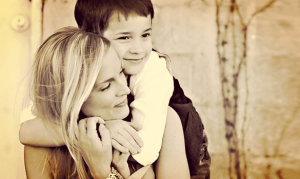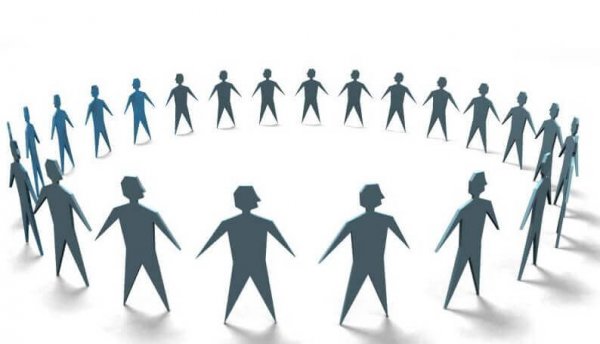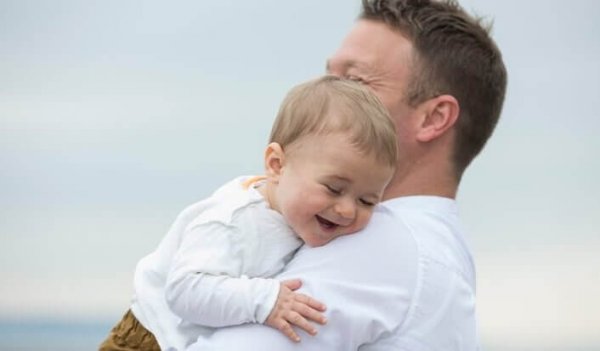My Son is Also Sensitive, Affectionate, Caring...


Written and verified by the psychologist Valeria Sabater
My son also says “I love you,” runs to my hugs, is caring, and doesn’t hesitate to show me affection and tenderness. Because boys, just like girls, also have that sweet sensitivity and emotional intelligence we should respect. Without shaming them for their feelings or their needs.
Developing, or rather, encouraging this more sensitive side in our boys is definitely worth it. It’s worth our time and above all our intuition.
But for some reason, as committed as society and even families may be to “apparent” gender equality, there are a lot of small things that have gotten lost along the way.
“It’s not our flesh or blood that turns us into parents and children, but our heart.”
-Friedrich Von Schiller-
Not long ago there was a poll of boys and girls across different schools in Spain, where for the first time girls said that one day they wanted to be like a very specific masculine figure: the business tycoon Amancio Ortega.
Now, they’ve internalized the idea that to social success takes certain positive skills. These include risk-taking, bravery, and action. All of them are dimensions that we exclusively associated with the male sex not very long ago.
While girls are fully conscious they can make some of these “masculine” traits their own, boys are still victims of defensive masculinity where traditionally “feminine” traits have no place. These might be sensitivity, gentleness, tenderness…
As a result we could say that despite all our social advances, sexism is still limiting us. It has a lot to do with how we raise our sons. We also have to remember that the patriarchy doesn’t just discriminate and oppress women, but men too. It “dictates” how they should be, how they should act, and how they should react.

The symbolic framework of “should be” and male circles
Roberto’s relationship with his girlfriend has just ended. After eight years, she told him she doesn’t love him anymore. Roberto’s world has shattered, the shards are piercing his heart and mind. It hurts so much he can’t breathe. He doesn’t know what to do, or how to react.
He feels the need to look for support from his friends. But he’s just realized that his friendships are based on “activities.” He plays basketball with some and does karate or video games with others.
He does, though, have his old friend, Carlos. He knows he could definitely talk with him. There’s a mutual trust and Carlos could listen to him, be a shoulder to lean on…
But Roberto has an even more complicated, frustrating problem. He doesn’t have to courage to look for that intimacy. He doesn’t know how to, he lacks the skills.
Finally, after a few months of darkness and an occasional suicidal thought, he decides to get professional help. After a few months of therapy, the psychologist recommends something Roberto has never heard of. Something that, strangely, will be as positive as it will be therapeutic: male circles.

What male circles are like
Society encourages homogeneity. Our parents sometimes hammer into us — like they did with Roberto — a whole framework of “how you should be, how you should act, and how you should think,” based on your sex. That kind of thing sooner or later will lead to contradictions, pain, and a lot of frustration.
The end goal of male circles is to create safe, confidential spaces where men can talk about their thoughts and needs. And, above all, where they can vent their feelings.
Something men and boys need to know is that they’re free to take off that armor to see the bullet holes society has punched in it. They’re free to cry. Free to show sensitivity, to talk about what they want without judgment from the predominating patriarchal system.
My son is caring and affectionate, he’ll always have his sensitive side
“Don’t cry.” “Don’t be indecisive.” “React.” “Don’t show any weakness.” “Don’t talk like that, what are you, a girl, speak louder…” All of this is sexist and discriminatory. They absolutely keep your son from maturing emotionally.
It’s not the right approach. In the end, these codes and roles define the cultural idea of masculinity. If we start integrating this at an early age all we’ll give the world is an emotionally limited and insecure person.
“A good parent is worth one hundred teachers.”
-Jean Jacques Rousseau-
Now then, it’s likely these boys will be prepared and competitive in certain areas, whether it’s spatial skills or working with their hands. But they’ll lack emotional skills. They’ll be incapable of tolerating frustration. And they won’t have efficient mechanisms to develop and process feelings as common as sadness or fear.
Let’s think more about this…Do we really want to raise boys who’ll one day be unhappy and create equally unhappy environments? Of course not.

Most of our little ones, whether boys or girls, are naturally affectionate and caring. We’re programmed to connect with people. To understand that warmth, sensitivity, and tenderness allow us to bond much better with one another.
Let’s respect and enable this side. Let’s allow our sons to freely learn how to express their emotions. To feel free to ask for a hug. To have no qualms about crying when they need to. To learn what’s inside of them that has nothing to do with their gender.
This text is provided for informational purposes only and does not replace consultation with a professional. If in doubt, consult your specialist.








